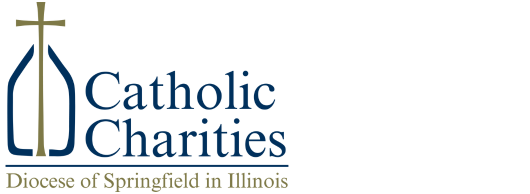Catholic Charities COPE Line offers hope through pandemic
For the past seven years Eleanor has suffered from dementia and her daughter Jenny has faithfully visited her in the nursing home where she lives.
When the nursing home closed its doors to the public because of safety concerns surrounding the coronavirus, Jenny feared her mom’s already failing health would worsen. Jenny quickly realized the stress she felt was causing her own health to deteriorate. Jenny needed someone to hear her cry for understanding and support.
Twenty-five miles away, pre-coronavirus, William’s social life consisted of leaving his home to go to the store and restaurants.
William had been a hard worker, but had become estranged from his family many years ago. He learned to adjust to a new kind of a loneliness with the arrival of the coronavirus. The 76-year-old retired United States Navy Veteran felt like any connection he had with the outside world dwindled to nothing and he needed someone to listen.
As the weeks passed, William and Jenny longed for normalcy. They both felt hopeless and depressed.
Then they both happened across an advertisement for a free public service, the Catholic Charities COPE Line, which offered compassionate, optimistic, professional, and empathetic mental health guidance by telephone, and decided to give it a call.
The Catholic Charities COPE Line was created a few weeks into the pandemic to help people deal with the stress and anxiety related to loneliness, confinement, finances, unemployment or other problems related to the coronavirus outbreak.
Unlike traditional therapy, there are no fees, no enrollment forms, and no applications. When they called the COPE Line they were met with compassion and empathy by licensed professional counselor, Annetta Finley.
Annetta has been a licensed therapist for 15 years. She listened to their problems and offered them hope in the middle of their anxiety and feelings of helplessness and uncertainty.
“The COPE Line is providing an outlet for people to vent, and gives them someone to listen without judgment or preconceived ideas,” said Annetta. “Some of the conversations have actually become spiritual and, in addition to listening and imparting coping skills, I’ve been able to pray with the person.”
“When the Governor’s Office put the Stay At Home Order restrictions in place, we knew that there would be many people who would become more socially isolated and depressed. We knew we had to be creative and think of ways to reach them and that’s how the idea for the Catholic Charities COPE Line was born.” said Steven Roach, Executive Director for Catholic Charities, in the Diocese of Springfield in Illinois.
“We want to be a light in every community we serve, big, small, rural and urban. Our main goal with the COPE Line is to help people understand they aren’t alone. We will continue to reach out to people because we are compelled by our mission to seek out those who are suffering. We know, due to COVID-19, there are many people who either need us for the first time or now more than ever,” said Roach.

